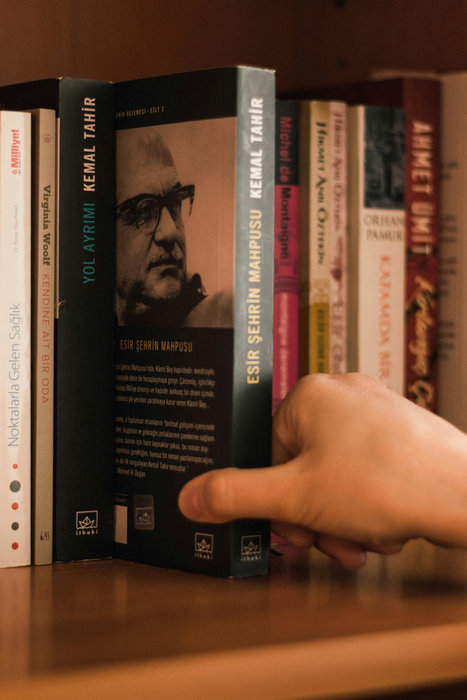If you dream of becoming a traditionally published author someday, writing an outstanding book proposal is a skill you must learn to master. Usually required by nonfiction publishers, this is where you can convince them that the work you’ve written or will be writing is worth their time and money.
Writing a book proposal is only one of the first steps on a long journey to getting published, but if you’re able to craft a solid one it can help you get ahead by creating a good foundation on which your book will be able to succeed. So now here comes the critical point where understanding these ten reminders will make sure that your book proposal is effective:
1. Establish Your Objective for Writing The Book Proposal
Writing a book proposal is more than a summarizing your book. It is a comprehensive plan that describes in detail what the contents are to be, the market potential, and the credentials of the author. A manuscript represents the whole text, while a book proposal acts as an advocacy document that you can use to entice potential publishers about your book idea. It is essential to comprehend this difference because it will determine how you assemble your data.
2. Learn Who Is the Publisher
As you prepare to write your proposal, it is important to spend time learning about the possible publishers to submit it to. Every publisher has peculiar interests, guidelines, and submission requirements. For this reason, while structuring your proposal, ensure that it fits within their desires and expectations. Ensure that you find companies with long histories of printing materials within genres close to yours as they are more likely to be interested in your particular proposal.
3. Create a Solid Overview
The core of your book proposal is the overview. It should offer a concise but interesting description of the book that touches on its central themes, goals, and potential readers. You might want to begin with some catchy phrases that would make the reader interested in whatever you are writing about. The main part of your overview must answer the basic questions: What are you writing about? Why should anyone care about it? Whom are you targeting? Your proposal for a brief introduction will be well in place when you have managed to accomplish this task.
4. Write a Detailed Table of Contents
A table of contents that is well-structured is important when displaying the arrangement and progress of your work. This gives book publishers an idea of what your book entails. Outline both chapters and big sections, including a little bit about them. This way, the publisher is able to tell how well-founded and successive your thoughts are. Moreover, it would show that you are organized and can plan ahead.
5. Create a Comprehensive Market Analysis
One good way to further convince your publisher that they should work with an author like you is to show that you know exactly what position your book will hold in the current market. Define your target audience to show who they are and assess your competitors at the same time. Tell the publisher how your book makes a difference when compared to other books on the shelf because uniqueness matters a lot in writing good books. Referring to current market trends will make the point for your demand even stronger.

6. Talk About Your Platform as an Author
Publishers want to be confident that you can promote your book. Your platform consists of different activities such as social media following, previous publications, and speaking engagements that you have previously had. Once you indicate your platform, the publishers can determine if a certain readership already exists or if you will be in a position to attract them. Include endorsements or testimonials, if any.
7. Include Sample Chapters
When it comes to displaying your writing style and the quality of your content, choosing the correct sample chapters is essential. Generally, the first two chapters should suffice because they provide an introduction to your book. Make sure that these chapters are well-developed and interesting. They should embody what your writing is all about such that the reader who begins chapter one keeps on asking for more until the end. The idea behind using sample chapters is to allow the publishers to get a feel for the manuscript before deciding whether or not they want to invest in it.
8. Write a Strong Author Bio
Depending on length, a bio usually contains information about your education, work history, and skills that are related to the subject matter. An interesting bio will prove your authority on the subject and link your background to the book. You may also include details of any past works published, prizes won, or notable accomplishments made by you in the recent past. If you’re a new writer who doesn’t have the accolades yet, compensate by writing a witty summary or one that shows a unique perspective or writing style. Publishers love spotting new writers with great potential.
9. Format Your Proposal Professionally
Follow the publisher’s guidelines when submitting materials. It shows you care about details and value their time when you submit a very well-written submission that has been formatted professionally for this purpose. Section headings, subheadings, and bullets will allow easier navigation through the work. Include a personalized cover letter about what you are going to write in your book plus explaining how excited you are to have an opportunity to work with the publisher or editor. Use standard fonts (12-point Times New Roman, Arial, or Courier New), spacing, and file formats (doc or pdf).
10. Proofread and Edit
In a perfectly written book proposal, the need for careful proofreading and editing cannot be underestimated. Don’t ruin your chances of landing a deal by not double-checking your work before submission. If possible, read your writing out loud or step away from it for some time then come back again with fresh eyes and a clear mind. Better yet, have someone who knows how to make it better (a professional editor or book proposal writer) take a look at it. Thorough editing shows your commitment to quality and competence, which are traits that publishers consider when working with authors.

TL;DR
Writing a book proposal is not something you should rush, and these reminders demonstrate how well you should plan, research, and polish before submitting to publishers. Remember the purpose of your proposal, research the target publishers, craft a compelling overview, develop a detailed table of contents, write a persuasive market analysis, highlight your author platform, include polished sample chapters, prepare a strong author bio, format the proposal professionally, and thoroughly proofread and edit.
Caret Publishing is a small press and imprint of niche non-fiction books. Feel free to send us a manuscript or book proposal if you have an idea for a book. Go to Submit Your Work for more details.
